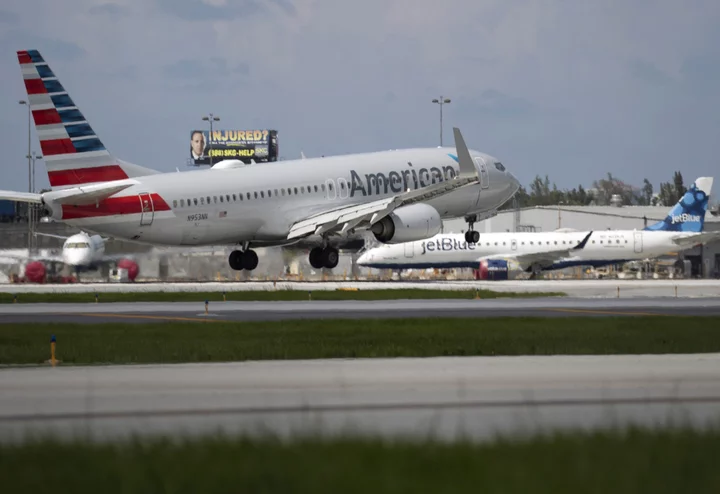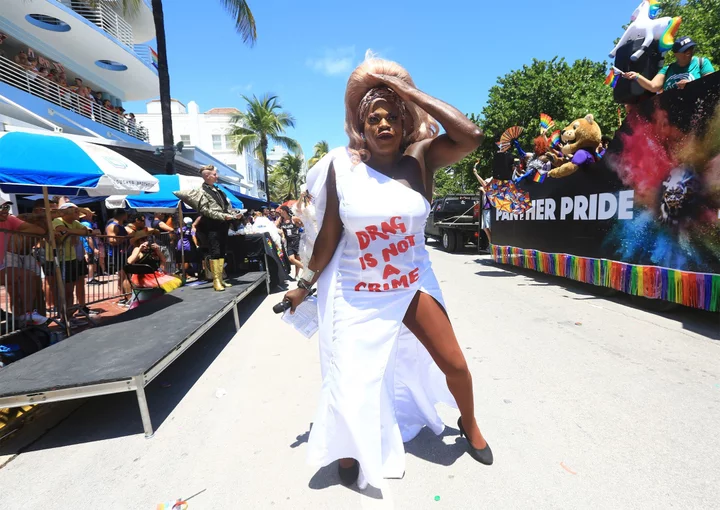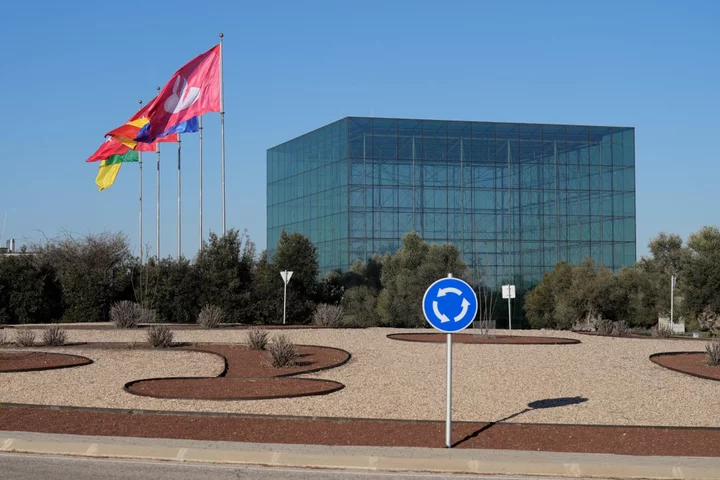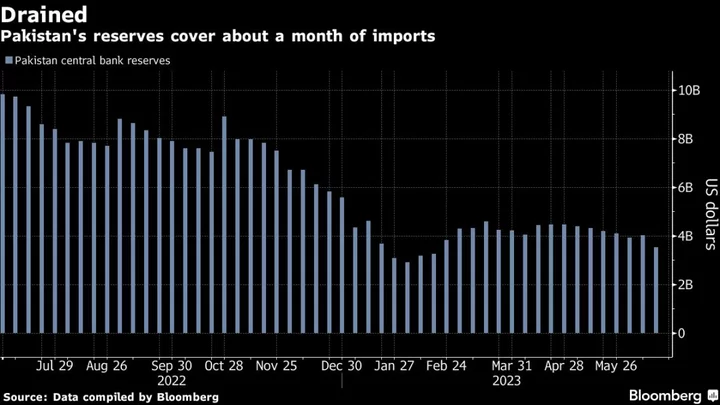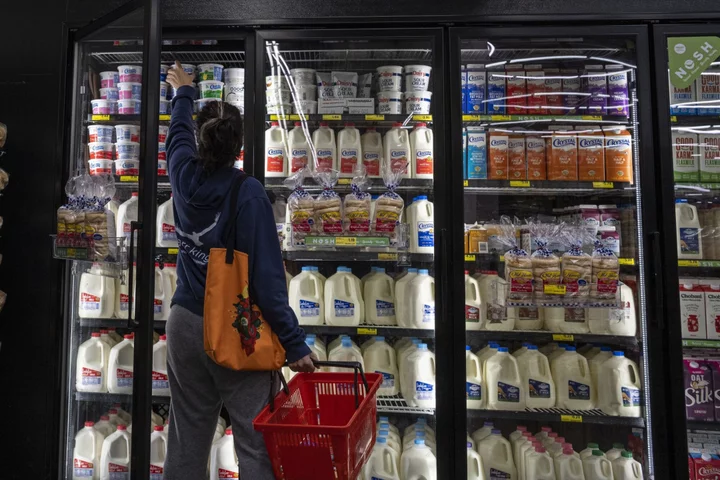American Airlines Group Inc. and JetBlue Airways Corp. must dissolve a partnership covering flights across the northeastern US, after a federal judge agreed with antitrust enforcers that the alliance would reduce competition and boost fares for consumers.
The Northeast Alliance, “operating as it was designed and intended by American and JetBlue, substantially diminishes competition in the domestic market for air travel,” US District Judge Leo Sorokin said in a ruling Friday.
Read the ruling here
The decision, which follows a monthlong trial that ended in November, hands a win to the Justice Department, which argued that the alliance, formed in 2020, gives the carriers too much control over competition in Boston and New York City and has led to higher prices for consumers. The judge permanently blocked the airlines from further implementing the tie-up, effective 30 days from the order.
American, JetBlue and the Justice Department had no immediate comment on the ruling. The airlines can appeal the order.
First Airline Challenge Since 2013
The Justice Department’s lawsuit was the first challenge the government has brought against airlines since 2013, and is part of the agency’s renewed trust-busting efforts under the Joe Biden administration. The department has also sued to block JetBlue’s proposed $3.8 billion merger with Spirit Airlines Inc. A trial is scheduled for October.
JetBlue shares fell 1.8% Friday in New York, while American slipped 1.5%. The companies’ shares were little changed in light postmarket trading.
Read More: American-JetBlue Deal Not Justified, US Argues as Trial Closes
American and JetBlue are two of the four largest carriers operating in New York, and two of the largest three in Boston, Sorokin noted. Delta Air Lines is the only other carrier with a large presence in Boston.
‘Naked Agreement Not to Compete’
“Though the defendants claim their bigger-is-better collaboration will benefit the flying public, they produced minimal objectively credible proof to support that claim,” the judge wrote. “Whatever the benefits to American and JetBlue of becoming more powerful — in the northeast generally or in their shared rivalry with Delta — such benefits arise from a naked agreement not to compete with one another.”
He added that “such a pact is just the sort of ‘unreasonable restraint on trade’ the Sherman Act was designed to prevent.”
American and JetBlue argued the alliance gave them the size to compete with larger rivals Delta and United Airlines Holdings Inc. in Boston and New York and created more options for consumers. The government didn’t prove travelers had been harmed by the venture, they said.
Consolidation within the industry, mainly triggered by a series of bankruptcies, eliminated five of the 10 biggest airlines between 2005 and 2013. The Justice Department sued to prevent the $17.2 billion merger of AMR Corp., then parent of American, and US Airways Group Inc. in 2013. That case was settled and the combination allowed to take place.
‘Common Sense’
The agreement between American and JetBlue diminishes competition “by combining the Boston and New York operations of two airlines that are among the most significant competitors in that region,” the judge found. “These two powerful carriers act as one entity in the northeast, allocating markets between them and replacing full-throated competition with broad cooperation.”
The court found there was “no credible evidence” that American and JetBlue have continued to treat each other as competitors in the northeast, despite claims from both airlines.
“The record confirms what common sense suggests: in forming the NEA, American and JetBlue decided to stop competing and start cooperating with one another in the northeast,” according to the judge. Instead, he said, “competition between them has effectively ceased.”
Both airlines have instead intensely focused on growing in New York at the expense of some other cities, Sorokin said. For example, while American in February 2020 had long-range plans to expand its business in Philadelphia, by September of that year it had “deprioritized” that city in favor of New York’s John F. Kennedy Airport and later took some aircraft out of its Philadelphia hub, he said.
And while JetBlue had planned on increasing service to Fort Lauderdale, the airline instead put those plans on hold, the judge wrote.
The case is US v. American Airlines Group Inc. and JetBlue Airways Corp., 21-cv-11558, US District Court, District of Massachusetts.
--With assistance from David Voreacos and Richard Clough.
(Adds details and context throughout, starting in second paragraph.)
Author: Leah Nylen, Mary Schlangenstein, Zoe Tillman and Patricia Hurtado

